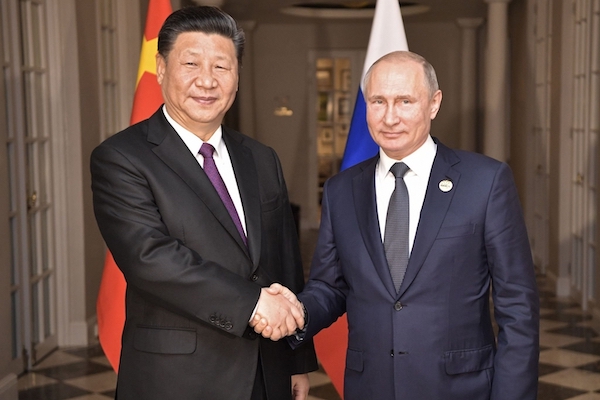Politics
NEW: Brazil, Russia, India, China, & South Africa Working on Developing ‘New Currency’

The world’s major economic powers are moving away from the US dollar and working towards creating a new global currency. The BRICS alliance, consisting of Brazil, Russia, India, China, and South Africa, is said to be collaborating on developing their own currency. This initiative is seen as a strategy for promoting shared objectives among the BRICS nations and reducing dependence on the United States.
According to a top Russian official, the move towards a new global currency will boost trade relations between “friendly nations.” Amid the ongoing Russia-Ukraine war, there is an opportunity for Moscow to explore more Indian markets and vice versa, with the aim of promoting a “common currency.”
“New Delhi, Beijing and Moscow are the nations that now institute a multipolar world that is endorsed by the majority of governments,” the Russian official said.
State Duma Deputy Chairman Alexander Babakov emphasized the need for a new currency that does not rely on the US dollar or euro, but rather forms a new currency capable of benefiting shared objectives.
“Its composition should be based on inducting new monetary ties established on a strategy that does not defend the U.S.’s dollar or euro, but rather forms a new currency competent of benefiting our shared objectives.” This initiative by Russia is seen as a step towards a multipolar world that is endorsed many of America’s foes.
However, the BRICS alliance poses a significant threat to the Biden administration and America. With a combined population of 3.1 billion people (40% of the world’s population) and a nominal GDP of $40 trillion (over 20% of the world’s GDP), the BRICS alliance is a force to be reckoned with. China, as the largest member in terms of population, nominal GDP, and export value, is positioned as the de facto leader of the group.
This shift away from the US dollar has significant implications for the global financial system. The US dollar has been the dominant global currency for decades, with many countries holding significant reserves in US dollars. The move towards a new global currency could challenge the dominance of the US dollar, leading to significant changes in the global financial landscape.
For the Biden administration, this shift away from the US dollar could lead to a loss of economic influence and geopolitical power. The US dollar’s dominance has enabled the United States to impose economic sanctions on countries that do not comply with its policies. A shift towards a new global currency could make it more difficult for the US to enforce these sanctions and limit its ability to exert economic pressure on other countries.
The Biden administration will need to adapt to these changes and find new ways to maintain its economic influence and geopolitical power in this new multipolar world.

